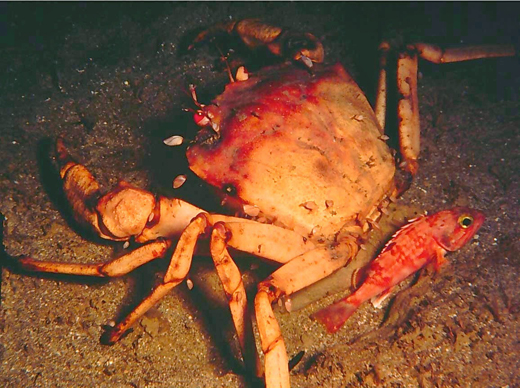The golden crab is a treasure hidden as deep as 2,000 feet under the sea off the Atlantic coast of Florida and the eastern Gulf of Mexico. This obscure, slow-growing crustacean inhabits cold waters of the continental slope, often 100 miles offshore, below the strong, warm currents of the Gulf Stream.
Only a few Florida fishermen hold the rights to harvest golden crabs, and they've mostly earned it through their own grit, guts and ingenuity.
"It's a small but really complex fishery," says Tracy Yandle, an associate professor in Emory's Department of Environmental Sciences, who studies issues around the regulation of the fishing industry and the governance of natural resources.
The Florida golden crab fishery serves as a case study for how fishermen can not only survive what the sea throws at them, but navigate through business and bureaucratic hurdles. Yandle, along with Scott Crosson and Brent Stoffle from the National Oceanic and Atmospheric Administration (NOAA), published a study of the fishery's renegotiation of property rights in the International Journal of the Commons.
Yandle notes that a crew of crabbers from Alaska came down to the Gulf of Mexico to try their hand at golden crabs but left without making a profit – much to the delight of the Florida fishermen. "Their lines got tangled, they lost their traps, and they went home," Yandle says. "You have to have a lot of technical skill and experience in that area because the Gulf Stream moves your gear everywhere."
Even if you can keep track of your miles-long line of traps, you've got to grapple the cable by towing for it with a hook, then haul the traps up through hundreds of feet of water. "You're pulling up cold water crabs through the fast-moving, warm waters of the Gulf Stream," Yandle says. "You've got to get the crabs through that as fast as you can if you want them to survive."

